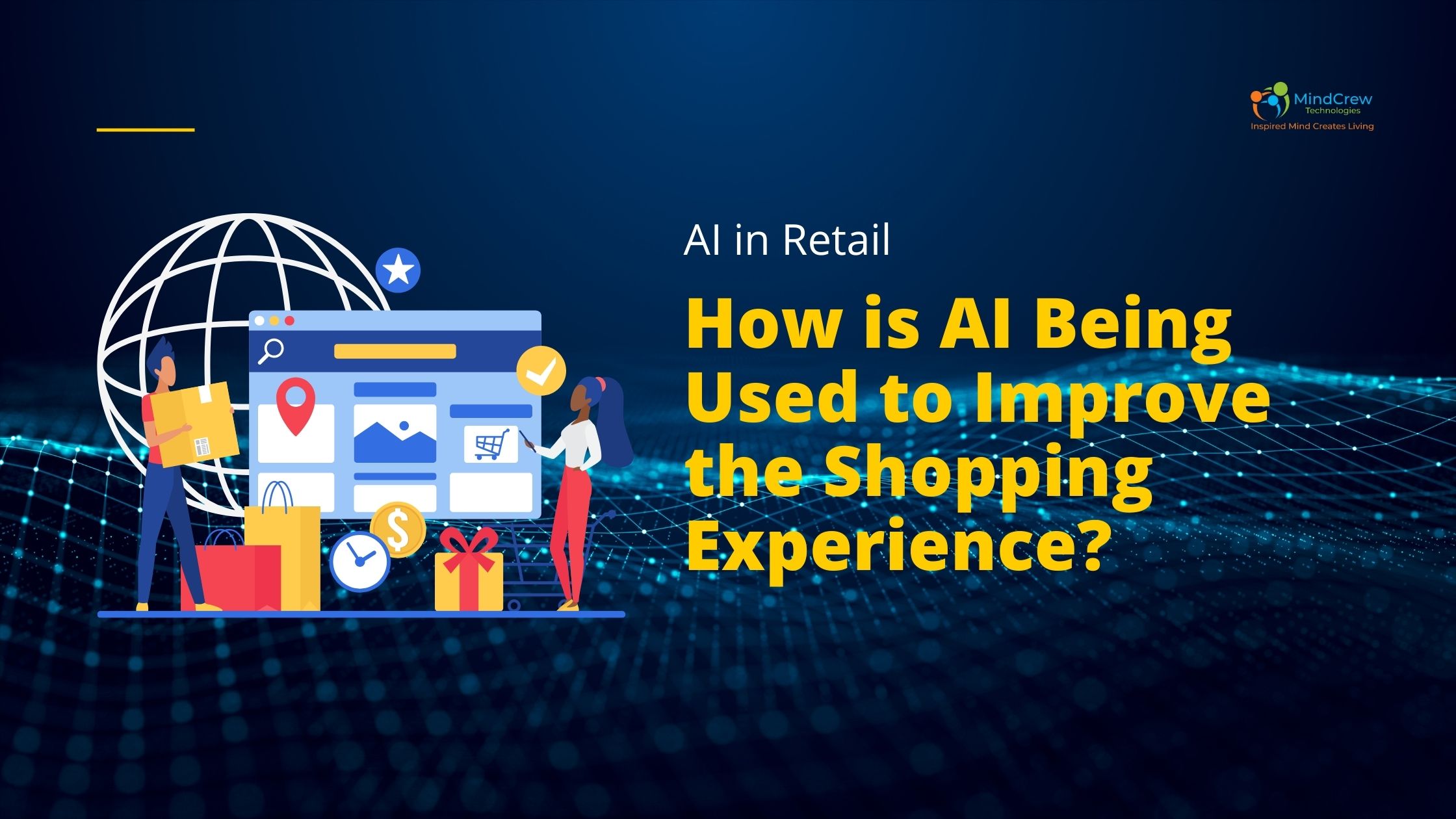AI in Retail: How is AI Being Used to Improve the Shopping Experience?
Artificial intelligence (AI) is rapidly transforming the retail industry, offering a plethora of opportunities to enhance the shopping experience and drive business growth. From personalized product recommendations to automated inventory management, AI is enabling retailers to create a more seamless, efficient, and engaging customer journey.
Personalized Shopping Experiences
One of the most significant ways AI is impacting retail is through personalization. By analysing customer data, such as purchase history, browsing behaviour, and demographic information, AI algorithms can generate tailored product recommendations and offers. This personalised approach not only increases the likelihood of customers finding products they are interested in but also fosters a sense of connection and understanding of the customer’s needs and preferences.
Enhanced Product Discovery
AI-powered search and discovery tools are revolutionising the way customers find products online. Natural language processing (NLP) enables search engines to understand complex queries and provide relevant results, while product recommendation engines suggest items that align with a customer’s past purchases and preferences. Visual search tools allow customers to find products using images, while chatbots can guide customers through the product selection process.
Streamlined Checkouts and Payments
AI is streamlining the checkout process, making it faster and more convenient for customers. Self-checkout kiosks powered by AI can handle product recognition and payment processing, reducing wait times and improving customer satisfaction. Mobile payment solutions with AI-powered fraud detection ensure secure and seamless transactions.
Efficient Inventory Management
AI is optimizing inventory management, helping retailers avoid stockouts and overstocks. AI algorithms can analyze sales data, demand patterns, and supply chain information to predict product demand accurately. This proactive approach helps retailers maintain optimal inventory levels, ensuring that the right products are available at the right time.
Predictive Analytics and Demand Forecasting
AI is empowering retailers to make data-driven decisions about inventory management, marketing campaigns, and store operations. Predictive analytics tools can forecast sales trends, identify customer churn risks, and optimize pricing strategies. This predictive capability gives retailers a competitive edge and enables them to make informed decisions that maximize profitability.
Chatbots and Virtual Assistants
AI-powered chatbots and virtual assistants are providing 24/7 customer support, answering product questions, resolving issues, and guiding customers through the shopping process. Chatbots can handle multiple customer inquiries simultaneously, providing a personalized and responsive customer service experience.
Virtual Try-On and Augmented Reality
AI is enabling virtual try-on experiences for clothing, cosmetics, and eyewear. Augmented reality (AR) apps allow customers to virtually visualize products in their homes or on their bodies, enhancing the shopping experience and reducing the need for physical returns.
Store Layout Optimization and Customer Traffic Analysis
AI is analyzing customer traffic patterns and dwell times in physical stores to optimize store layouts and product placement. Heatmaps and path analysis tools provide retailers with insights into how customers move through the store, allowing them to strategically place products and promotional displays to maximize customer engagement.
Fraud Detection and Prevention
AI is playing a crucial role in fraud detection and prevention in retail. Machine learning algorithms can analyze transaction data and identify patterns that indicate fraudulent activity, such as suspicious purchase patterns or unusual payment methods. This real-time fraud detection helps protect retailers from financial losses and safeguard customer information.
The Future of AI in Retail
As AI technology continues to evolve, its impact on the retail industry is expected to grow even more significant. AI will play a central role in creating immersive and personalized shopping experiences, optimizing supply chains, and automating routine tasks, allowing retailers to focus on delivering exceptional customer service and enhancing brand loyalty.
AI in Retail: Specific Examples
To illustrate how AI is being used in retail, let’s explore some specific examples of companies that are leveraging AI to improve their operations and customer experiences:
Amazon: Amazon’s AI-powered recommendation engine is one of the most sophisticated in the world, analyzing customer data to suggest products that are highly relevant to each individual shopper. Amazon also uses AI to optimize its supply chain, manage inventory levels, and personalize product pricing.
Sephora: Sephora’s Color IQ app uses AI to scan a customer’s skin and recommend makeup products that match their skin tone. The app also provides personalized tips and tutorials on how to apply makeup.
Walmart: Walmart uses AI to automate its inventory management, using drones to scan store shelves and identify missing or mislocated items. Walmart also uses AI to optimize its delivery routes, reducing costs and improving delivery times.
Nike: Nike uses AI to develop personalized training programs for athletes. The Nike FuelBand collects data on an athlete’s activity levels and uses AI to provide personalized recommendations for workouts, recovery, and nutrition.
Home Depot: Home Depot uses AI to improve its customer service. AI-powered chatbots can answer customer questions about products, services, and store locations. Home Depot also uses AI to personalize product recommendations and provide DIY project tutorials.
The Impact of AI on Retail Jobs
While AI is transforming the retail industry, it is also raising concerns about its impact on jobs. Some experts believe that AI will automate many retail jobs, such as cashiers, stockers, and customer service representatives. However, others believe that AI will create new jobs, such as AI developers, data scientists, and AI-powered product specialists.
The overall impact of AI on retail jobs is likely to be mixed. Some jobs will be lost to automation, but others will be created. The key for retail workers will be to develop skills that are complementary to AI, such as creativity, problem-solving, and social intelligence.
The Future of AI in Retail
AI is still in its early stages of development, and its impact on the retail industry is only going to grow in the coming years. Here are some trends to watch for:
- More personalized shopping experiences: AI will be used to create even more personalized shopping experiences, tailoring product recommendations, store layouts, and marketing campaigns to individual customers.
- Augmented reality and virtual reality: AR and VR will become more commonplace in retail, allowing customers to virtually try on products, visualize products in their homes, and experience immersive product demonstrations.
- Conversational AI: Chatbots and virtual assistants will become more sophisticated, able to understand complex customer queries and provide personalized support.
- AI-powered supply chains: AI will be used to optimize supply chains, from predicting demand to managing inventory levels to optimizing delivery routes.
AI is poised to revolutionize the retail industry, creating a more seamless, efficient, and engaging customer experience. Retailers that embrace AI will be well-positioned to thrive in the future of retail.
Conclusion
AI is transforming the retail landscape, offering a multitude of opportunities to enhance the shopping experience, improve operational efficiency, and drive business growth. Retailers that embrace AI and leverage its capabilities will be well-positioned to thrive in an increasingly competitive and data-driven market.







